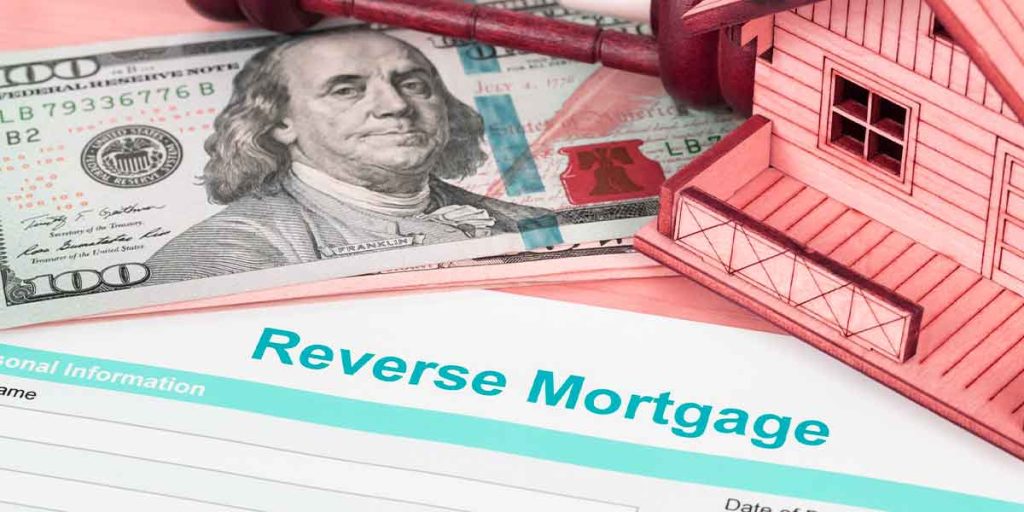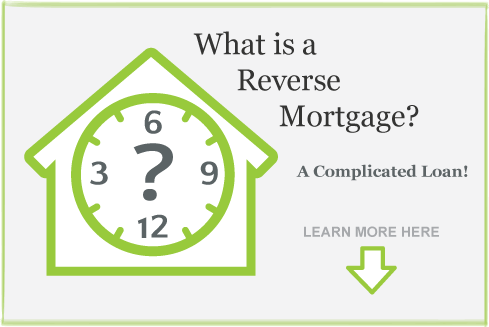The Process Involved When You Decide to Purchase Reverse Mortgage
The Process Involved When You Decide to Purchase Reverse Mortgage
Blog Article
Step-By-Step: Just How to Purchase a Reverse Mortgage With Self-confidence
Navigating the intricacies of acquiring a reverse mortgage can be challenging, yet a methodical approach can empower you to make enlightened decisions. It begins with assessing your qualification and recognizing the subtleties of numerous funding choices available in the market (purchase reverse mortgage). As we explore each action, it ends up being apparent that confidence in this economic choice pivots on extensive preparation and notified selections.
Comprehending Reverse Home Mortgages

The primary system of a reverse mortgage entails borrowing against the home's worth, with the funding quantity raising gradually as rate of interest builds up. Unlike conventional home mortgages, consumers are not called for to make month-to-month repayments; instead, the car loan is settled when the property owner markets the residential or commercial property, leaves, or dies.
There are two primary types of reverse home mortgages: Home Equity Conversion Home Loans (HECM), which are federally insured, and proprietary reverse home loans used by personal loan providers. HECMs usually give greater security because of their governing oversight.
While reverse home mortgages can offer monetary alleviation, they additionally include costs, including source fees and insurance policy costs. Therefore, it is critical for possible customers to totally understand the terms and implications before proceeding with this financial choice.
Evaluating Your Qualification
Eligibility for a reverse home mortgage is primarily established by several essential elements that prospective consumers have to think about. First and primary, applicants must go to least 62 years of age, as this age requirement is established to make certain that consumers are coming close to or in retirement. In addition, the home should serve as the customer's main home, which suggests it can not be a vacation or rental residential property.
One more crucial element is the equity position in the home. Lenders commonly require that the debtor has an adequate quantity of equity, which can impact the amount available for the reverse home loan. Generally, the a lot more equity you have, the larger the lending amount you may qualify for.
Moreover, potential consumers need to demonstrate their capacity to fulfill economic commitments, including real estate tax, homeowners insurance coverage, and upkeep costs - purchase reverse mortgage. This analysis typically includes a financial evaluation conducted by the lender, which evaluates revenue, debt history, and existing financial obligations
Lastly, the residential or commercial property itself need to meet particular standards, consisting of being single-family homes, FHA-approved condominiums, or certain manufactured homes. Comprehending these aspects is vital for determining qualification and preparing for the reverse home mortgage procedure.

Researching Lenders
After establishing your eligibility for a reverse home mortgage, the following step involves researching loan providers that provide these monetary products. It is crucial to recognize reputable lending institutions with experience backwards mortgages, as this will ensure you receive reputable support throughout the process.
Begin by reviewing lending institution credentials and certifications. Look for lenders who are members of the National Opposite Mortgage Lenders Organization (NRMLA) and are accepted by the Federal Housing Administration (FHA) These associations can suggest a commitment to ethical techniques and conformity with sector criteria.
Checking out consumer evaluations and testimonials can give understanding right into the loan provider's credibility and client service top quality. Sites like the Better Company Bureau (BBB) can also supply scores and problem backgrounds that might aid notify your choice.
In addition, talk to monetary advisors or real estate counselors that specialize in reverse home mortgages. Their proficiency can help you navigate the alternatives readily available and suggest trustworthy lenders based upon your distinct monetary circumstance.

Comparing Finance Choices
Contrasting lending alternatives is a critical action in securing a reverse home mortgage that lines up with your monetary objectives. When examining various reverse mortgage products, it is vital to take into consideration the details attributes, prices, and terms associated with each option. Beginning by examining the type of reverse home loan that ideal fits your requirements, such as Home Equity Conversion Home Mortgages (HECM) or proprietary loans, which may have check my source various eligibility requirements and benefits.
Next, focus on the rates of interest and charges related to each finance. Fixed-rate fundings give stability, while adjustable-rate options might supply lower preliminary rates yet can rise and fall gradually. In addition, take into consideration the ahead of time expenses, consisting of home mortgage insurance premiums, source fees, and closing prices, as these can dramatically influence the overall cost of the financing.
Additionally, evaluate the settlement terms and just how they align with your long-lasting monetary technique. When the finance must be paid off is important, understanding the ramifications of exactly how and. By extensively contrasting these variables, you can make a notified decision, ensuring your choice sustains your monetary well-being and offers the safety and security you seek in your retired life years.
Settling the Acquisition
Once you have thoroughly examined your choices and picked one of the most suitable reverse home mortgage product, the next action is to finalize the acquisition. This procedure involves numerous critical steps, ensuring that all needed documentation is accurately completed and submitted.
First, you will require to collect all called for paperwork, including proof of revenue, real estate tax statements, and property owners insurance documentation. Your lending institution will certainly supply a listing of specific records required to promote the authorization process. It's essential to offer accurate and full details to stay clear of hold-ups.
Following, you will go through a thorough underwriting procedure. Throughout this phase, the loan provider will certainly assess your economic circumstance and the worth of your home. This may consist of a home assessment to establish the home's market value.
When underwriting is complete, Get the facts you will certainly get a Closing Disclosure, which describes the last regards to the car loan, consisting of costs and rate of interest rates. Testimonial this record carefully to make sure that it aligns with your expectations.
Final Thought
In conclusion, navigating the procedure of purchasing a reverse mortgage requires a detailed understanding of qualification requirements, thorough study on loan providers, and mindful comparison of finance options. By methodically following these steps, people can make enlightened decisions, look at here now ensuring that the selected home mortgage aligns with economic objectives and needs. Eventually, an educated approach fosters confidence in safeguarding a reverse home mortgage, supplying economic security and assistance for the future.
Look for lending institutions who are members of the National Opposite Mortgage Lenders Association (NRMLA) and are approved by the Federal Real Estate Administration (FHA)Contrasting finance alternatives is a vital step in securing a reverse home mortgage that lines up with your economic objectives (purchase reverse mortgage). Beginning by assessing the kind of reverse home mortgage that ideal fits your needs, such as Home Equity Conversion Home Loans (HECM) or exclusive finances, which may have different eligibility criteria and benefits
In verdict, navigating the process of purchasing a reverse home mortgage needs a detailed understanding of qualification requirements, persistent research on lending institutions, and mindful contrast of loan alternatives. Ultimately, an educated technique cultivates confidence in safeguarding a reverse home loan, giving economic security and assistance for the future.
Report this page